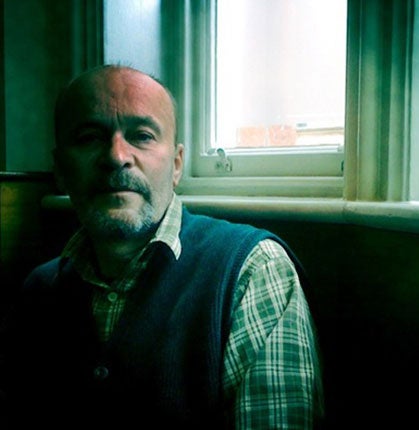Two Cows and a Vanful of Smoke, By Peter Benson
The Butch and Sundance of scrumpy country

A new novel by Peter Benson is cause for celebration. Possibly the most underrated English novelist of the past quarter of a century, Benson is in part responsible for my love of books.
In 1989, I wrote an article for Harpers & Queen about being a Dorset teenager and about being depressed. It was the kind of article that a depressed teenager from Dorset might write. However, an editor at a London publishing house liked it and invited me to lunch. He had just published Benson's debut, The Levels, a glorious tale of first love blooming in the Somerset wilds, and recommended that I read it before trying my hand at fiction. Benson, who had been John Fowles's gardener down the coast to me at Lyme Regis, had honed a particularly rural romanticism that I instinctively recognised.
The Levels won Benson the Guardian Fiction Prize. His second book, A Lesser Dependency, garnered the Encore Award, and then he picked up the Somerset Maugham Award for The Other Occupant. Yet after seven novels he has been out of print for 15 years. Now, with Two Cows and a Vanful of Smoke, he has returned to his beloved Somerset and to the rocky path of youth.
Set in the legendary summer of 1976, when the country went into meltdown thanks to a crackling heatwave, Benson has shaped a coming-of-age tale that is one part thriller and two parts poem to his corner of the West Country. His narrator, Elliot, is 21 and brooding on his prospects in the village of Ashbrittle. It's a time of hosepipe bans and frayed tempers. Having lost his job as a tree surgeon owing to vertigo, he takes a position at a dairy farm, helping out its owner, old Mr Evans. In return for milking, he gets a little caravan and plenty of time to watch the buzzards circle and the season unfold.
The fly in the cider is his best friend Spike; a dope in more ways than one. When he confides in Elliot that he has found a secret "hoop house" out in the woods the pair decide to investigate under the canvas of night. They discover a hash-cache, a heady crop of illegal grass grown by two dangerous looking agrarians. When Spike returns and liberates the entire harvest, Elliot's bucolic idyll suddenly gets as hot as the midday sun.
Two qualities thread through Benson's narrative like a pair of streams coursing a meadow. The first is a naturalist's eye, the second an understanding of the complexities and consolations of human bonds. Benson's Somerset is a nest of kooky country ways and scorched hedgerows. "Ashbrittle wheezed and sweated, and in the middle of the day, dogs collapsed in the road and refused to move," says Elliot. Reading the book as historical fiction, I was frequently reminded of our weakening links to the natural world. While we carelessly ignore its rhythms and lores, Benson's prose reminds us of nature's sensual beauty: "The copse was long and thin, untidy with hazel coppice and ash, and it slipped down a frightened slope like a skirt off a thigh."
Friendship is captured in equally heartfelt terms. Elliot and Spike are the unlikely Butch and Sundance of scrumpy country. As Elliot notes, "until you meet these people you are only part of a person. You need others to make you". At a time of growing urbanism and reductive social interaction, this delightful novel extols the simple virtues of landscape and love, a sentiment that is as important now as it was when Benson first became a storyteller. Perhaps even more so.
Join our commenting forum
Join thought-provoking conversations, follow other Independent readers and see their replies
Comments